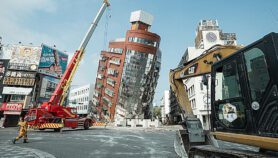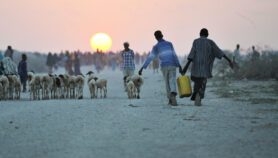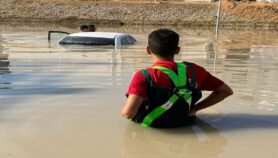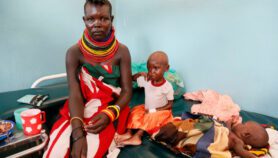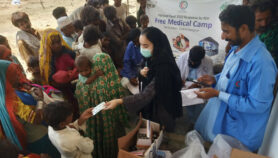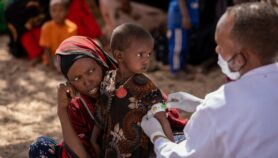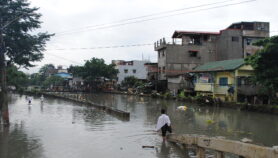By: Wagdy Sawahel
Send to a friend
The details you provide on this page will not be used to send unsolicited email, and will not be sold to a 3rd party. See privacy policy.
[CAIRO] The League of Arab States plans to set up a research centre to study the risk of earthquakes and other natural disasters.
The league — which includes 22 countries spanning the Arab World — says the Arab Center for Earthquakes and Natural Disasters (ACEND) will aim to promote earthquake research and awareness, reduce economic impacts of disasters and save lives.
ACEND will be located in Algeria, the Arab country most vulnerable to earthquakes. The US$2 million centre is expected to open by the end of 2005.
Gamal El-Din Gaballah, head of the Arab League’s department of environment, human settlement and housing, told SciDev.Net that research at ACEND will cover a number of bases, from the regional to the global.
The centre will gather new information about earthquakes in Arab countries and beyond, and share the information with national and international agencies, scientists and the general public.
Gaballah said the centre will go on to compile and maintain a global database of earthquake measurements and their effects, to serve as a foundation for basic and applied earth science research.
The centre, said Gaballah, will promote cooperation between experts and institutions concerned with earthquake risk reduction by creating networks of seismologists, engineers, ministries, government authorities and professional societies.
To strengthen the skills base in Arab countries, the centre will organise workshops and training courses in seismology, earthquake engineering and civil defence, said Gaballah.
Worldwide, concern about natural disasters, and earthquakes in particular, has risen since the December 2004 tsunami in the Indian Ocean.
During the tsunami, the coasts of Oman and Yemen witnessed increasingly high waves, which endangered coastal areas, ports and vessels. This prompted Oman to start planning for an early warning system to protect its coasts.
Speaking to SciDev.Net, Farouk El-Baz, professor of geology and director of the Center for Remote Sensing at Boston University in Massachusetts, United States, said that earthquake-driven tsunamis do present a threat to some Arab countries.
El-Baz said that the Gulf is reasonably stable, with no major active faults, and that its narrowness and shallowness mean a tsunami is unlikely to occur within it. However, the southern boundary of the Arabian subplate of the Earth’s crust is bordered by a major fault in the Indian Ocean. El-Baz said it is conceivable that further movements along this might trigger earthquakes.
He added that while earthquakes in Arab countries are expected to measure no more than 6 or 7 on the Richter scale, this rating is high enough to indicate that countries in the region should establish monitoring systems. He welcomed the news that the Arab League intends to push for the establishment of an Arab network of sensors overseen by geophysicists and linked to international networks.


